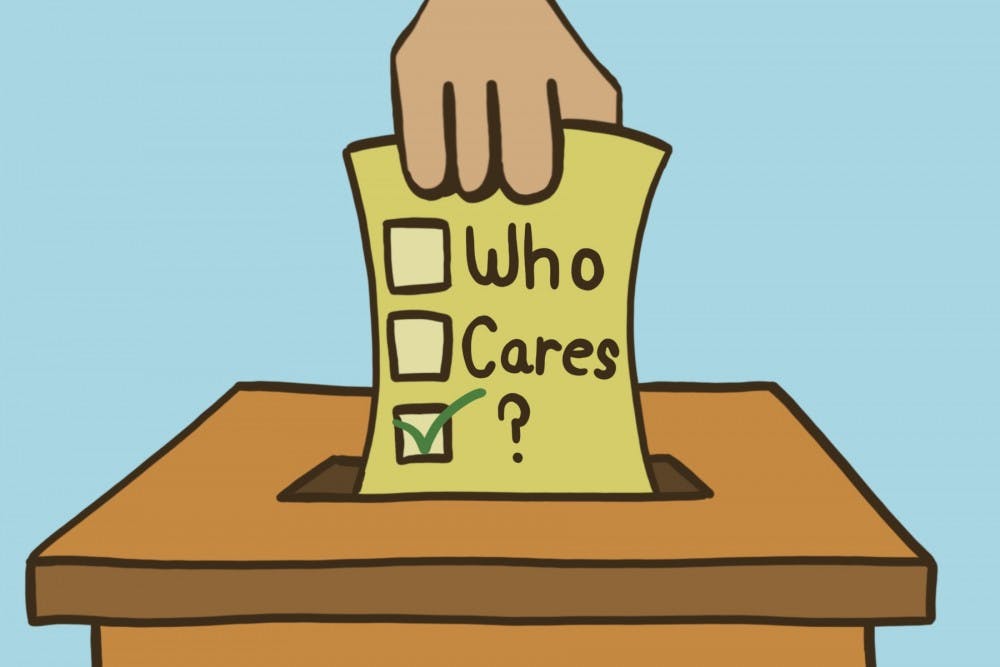College students seem to be politically active in some ways, but not others. Protesting on college campuses has been covered heavily by the media these past few months. However, college-aged students represent the lowest voting demographic in the U.S.
This isn't because they are not politically engaged – it is because college students often feel that their votes do not matter, and feel their voices are overshadowed by more powerful factors.
Low student voter turnout is not due to indifference – it is due to a sense of powerlessness.
"I think that if we can communicate to college students how much politics affects them even now, they will be more interested in getting engaged," Joey Cilano, state organizer of Steve Montenegro's campaign for the Arizona Secretary of State, said. "We, fortunately, live in a country where all of us can have a say in how government affects our lives. If students rose up to speak on these issues, those 'in power' would have no choice but to listen."
If politicians paid more attention to college students' needs, they may be more inclined to participate in the political process.
"Since most politicians are afraid to talk about student debt, or inflationary cost increases, they don't motivate young people by talking about the issues that affect their wallets," Matthew Perry, former president of the Arizona Young Republicans, said.
Talking about issues that directly impact college students is one of the most significant ways to motivate them to vote. When students see how these policies are affecting them, they will learn to understand that their votes are important.
Many policies implemented today will have a significant impact on college students in the future – voting now is one of the most effective ways to be heard.
However, for those who do understand that their votes matter, gaining access to a ballot does not always seem possible.
Roughly 26 percent of ASU students are out-of-state students, many of whom do not change their voting address to their college address. This leaves a huge chunk of out-of-state students unable to vote.
Restricted access to poll booths is also an incredibly damaging situation for college voters. Even those who are able to travel to a poll booth know how difficult it is to find time to wait in the voting line, potentially for hours, in between class and work.
It is important that students are provided with necessary resources to register to vote. Recently, ASU’s Undergraduate Student Government conducted an event for National Voter Registration Day, allowing students from across the campus to register to vote in the state of Arizona.
Limited access to voting is not the only reason college students aren't voting – they are not given access to the necessary information.
Dorm and apartment living is often incredibly isolating, making students inaccessible to political canvassers. This prevents students from receiving information about how particular policies or politicians plan to represent their demographic.
Other means of political activism, such as protesting, are frequent among college-age students. Students resort to these activities to satisfy their need to make an impact, in lieu of voting.
In order to change this, we need to find ways to help students understand the significance of their vote and voice.
If students feel they are represented, they may be more likely to vote. Officials that are elected today have a direct impact on college students’ future. They should be just as, if not more involved, than any other voter in the country.
Reach the columnist at amsnyde6@asu.edu or follow @AnnieSnyder718 on Twitter.
Editor’s note: The opinions presented in this column are the author’s and do not imply any endorsement from The State Press or its editors.
Want to join the conversation? Send an email to opiniondesk.statepress@gmail.com. Keep letters under 500 words and be sure to include your university affiliation. Anonymity will not be granted.
Like The State Press on Facebook and follow @statepress on Twitter.




